Telling the story of Quan Ho singing through souvenirs
Entering the space of the Hoai Trung Quan Ho Club (Lien Bao Commune, Tien Du District, Bac Ninh), we seemed to be reliving the vivid memories of Quan Ho in the past. More than 200 artifacts, such as conical hats, umbrellas of the old Lien Ho singers; silk, brocade, oak, and silk waistbands; betel boxes, mortars, lime pots, and pipes used in traditional ceremonies and communication; oil lamps that light up the singing night; and tea sets, flower bowls, bronze pots, and wooden trays that were present in every meal imbued with Quan Ho sentiment...
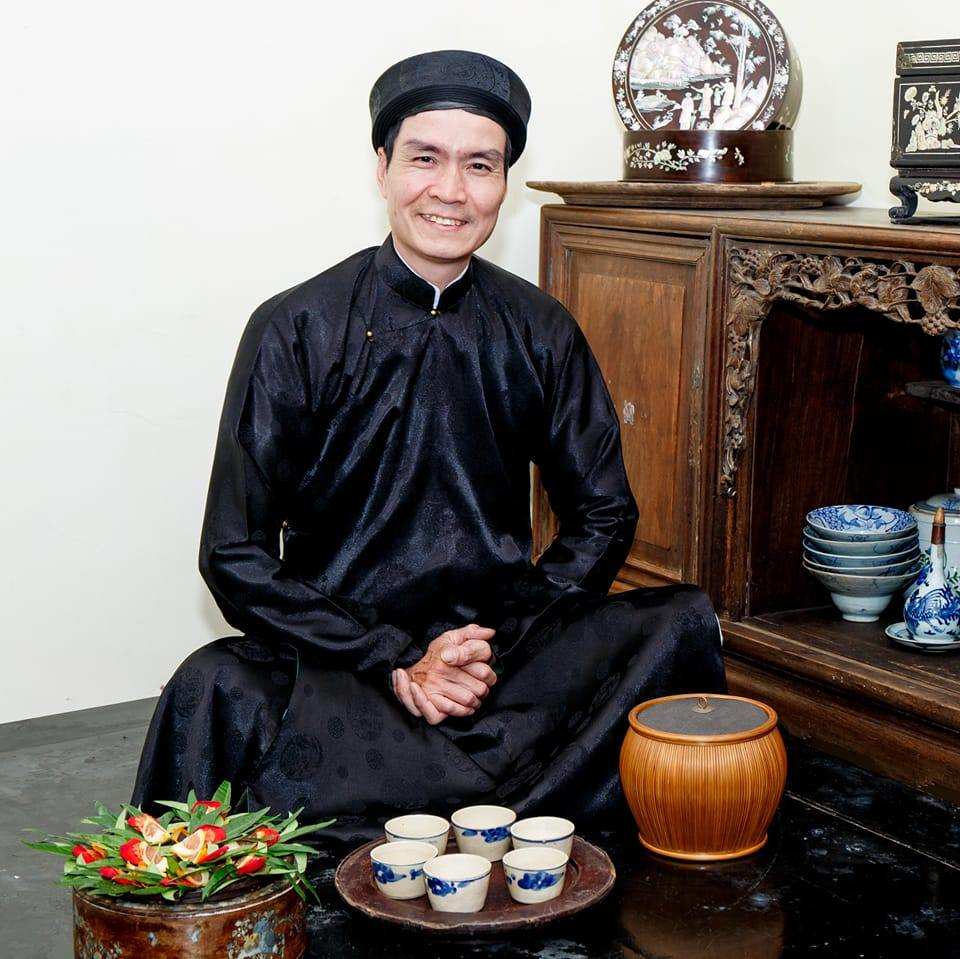 |
Mr. Duong Duc Thang, Vice President of Hoai Trung Quan Ho Club. Photo: NVCC |
Most of these precious relics were painstakingly collected by Mr. Duong Duc Thang (Vice Chairman of the Hoai Trung Quan Ho Club) over more than three decades. On each artifact, Mr. Thang carefully wrote down the names and hometowns of the artists who owned it; as a way to preserve the personal imprints and lifestyles of Quan Ho predecessors - the previous generation of elite artists; among them were people recognized as "living human treasures" or were awarded the title for the first time when Quan Ho folk songs were recognized as Intangible Cultural Heritage in 2009.
With the proper communication style of Quan Ho people, Mr. Thang addressed us as “em” while introducing the souvenirs: “This is a betel tray inlaid with mother-of-pearl, a painting of returning home to pay homage to ancestors – a souvenir of my grandmother, artist Nguyen Thi Hap. She was the daughter of a famous Quan Ho family in Hoai Trung. In the past, every time she went out, she always brought this betel tray with her. After marrying my grandfather, artist Duong Van Quyen, the betel tray also followed her but then got lost. It took many years of searching, and then thanks to the story of the two grandparents, I learned that this souvenir was in Choi village. After a long time of persuasion, they were finally moved and returned it.”
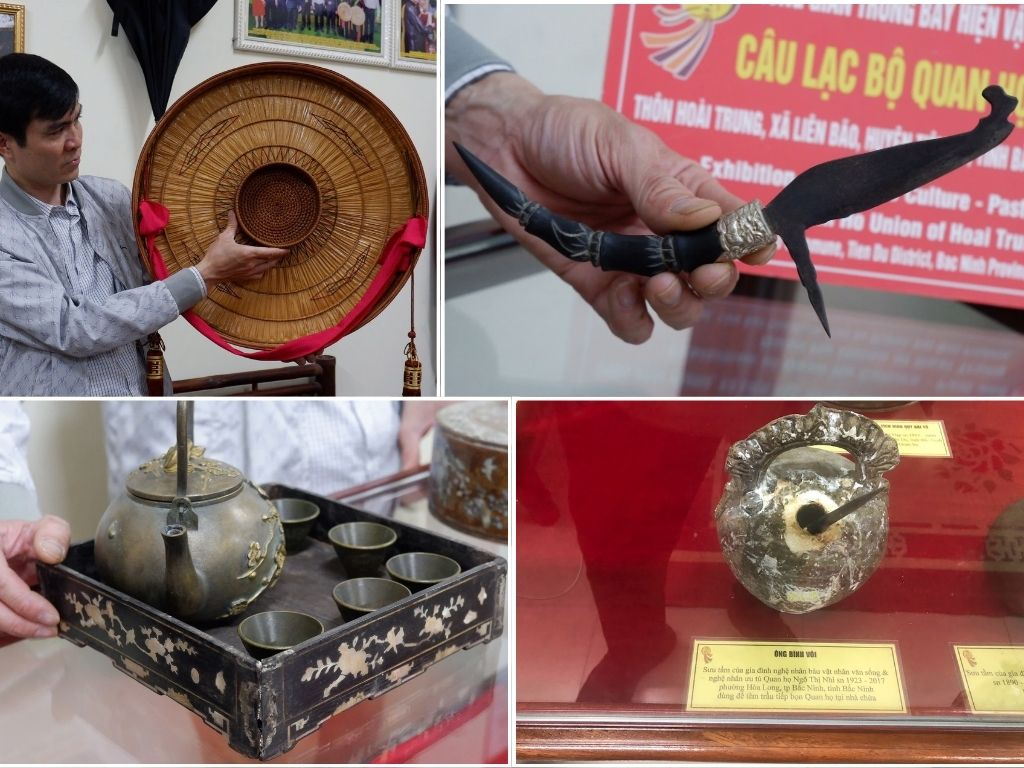 |
In addition to the souvenirs that can be considered “family heirlooms”, Mr. Thang also collected unique Quan Ho instruments such as the bamboo betel knife. Mr. Thang spontaneously recited a poem:
“This knife is typical of Quan Ho, the head of the knife is shaped like a dragon, the tail is shaped like a phoenix, and especially, the blade is made like a bamboo leaf. Every detail has a deep symbolic meaning, not only as an object but also showing the delicate beauty of Quan Ho culture,” Mr. Thang continued.
Mr. Thang shared that he had been conscious of preserving his grandparents' relics since he was a child. In 1996, when he followed his grandparents to exchange and interacted with many artisans of the same generation as his grandparents, he came up with the idea of collecting and preserving these precious artifacts. As the grandson of two famous and exemplary Quan Ho artisans, he was loved by other artisans. Thanks to that, he had the opportunity to get close to them, learn the songs and learn about the relics that the elders still kept. When the elders were preparing to "return to their ancestors", Mr. Thang asked for permission to keep the relics and they agreed. Before that, he also tactfully asked if the elders had any lost items and inquired about their whereabouts so that he could collect them later.
Not disappointing the trust of the senior artisans, at the end of 2022, Mr. Duong Duc Thang and the Hoai Trung Quan Ho Club established the Quan Ho Gallery of the Past and Present to welcome visitors from near and far to visit, learn and research Quan Ho culture. In addition, the relics are also regularly borrowed by the Bac Ninh Provincial Cultural Center to display at cultural events taking place both inside and outside the province.
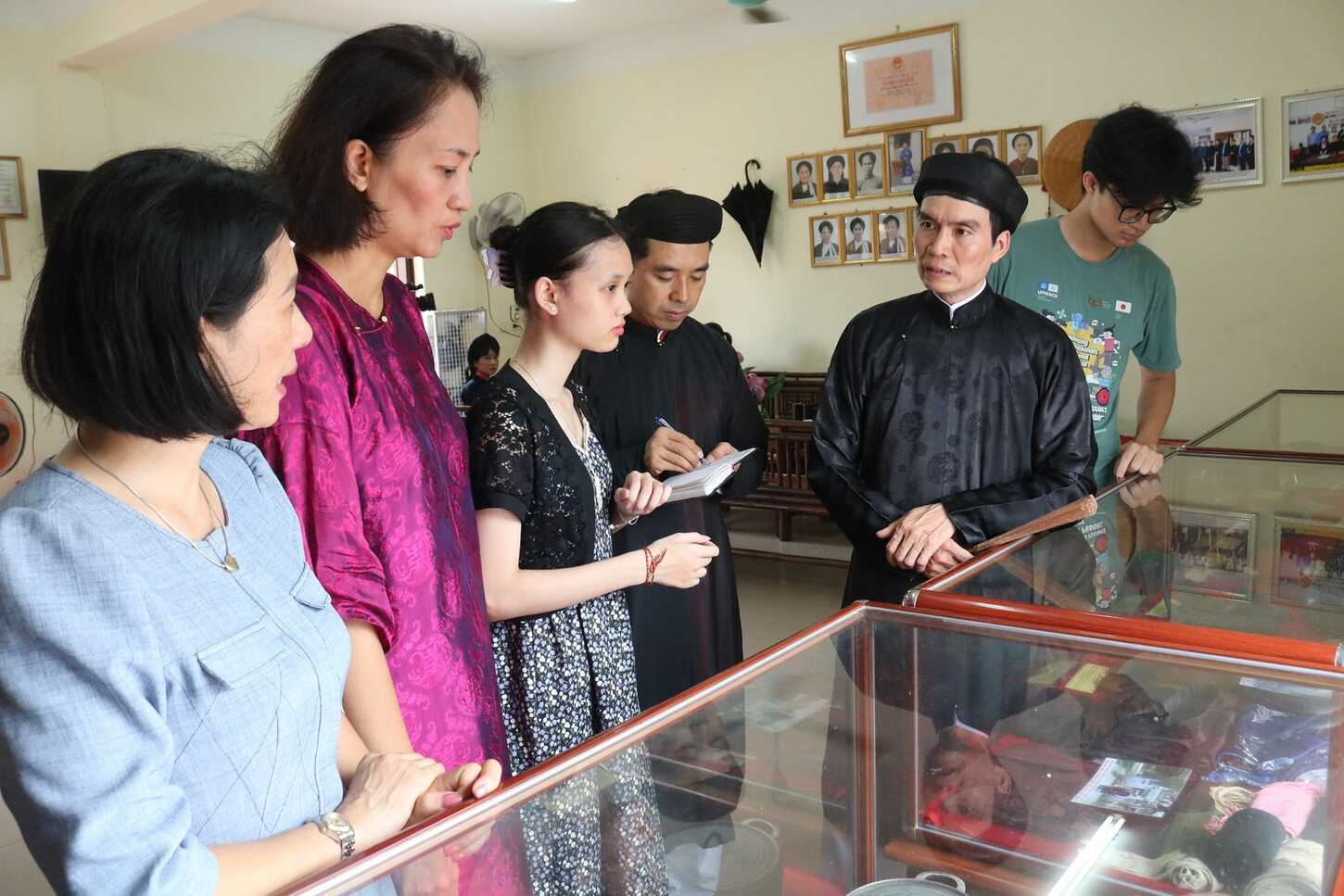 |
Not only known as a person who contributes to preserving and spreading Quan Ho through relics, Mr. Thang is also an exemplary Lien Anh, possessing many "valuable assets" with a deep understanding of Quan Ho culture.
Family lineage
Born into a family with a tradition of playing Quan Ho for six generations, Thang is the grandson of two famous and exemplary artists, Duong Van Quyen and Nguyen Thi Hap, in the Quan Ho Hoai Trung village. Since he was a baby, he was lulled to sleep by Quan Ho songs and listened to his grandparents tell stories about this profession. His love and passion for Quan Ho was ingrained in him from a very early age.
When he was only 4 years old, Thang knew the song “Long Van Doi Cho”. By the age of 10, he had memorized about 50 Quan Ho verses and could sing “La rang” – the most difficult Quan Ho verse. By the age of 16, he had absorbed all the knowledge from his grandparents and 5 other artisans in the village.
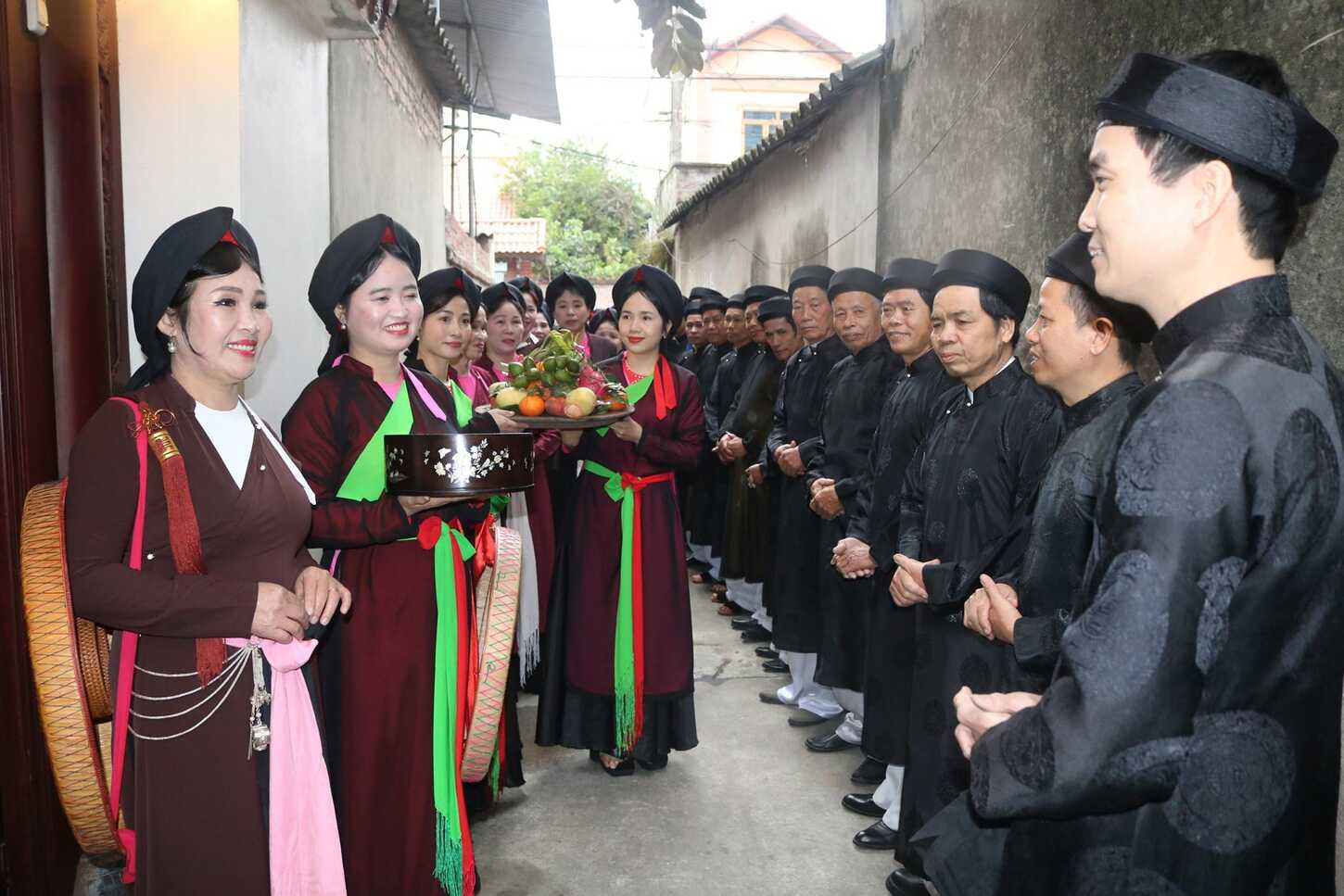 |
However, Mr. Thang always remembers his grandparents' advice: "Quan Ho is a vast and vast book, whoever knows the way, will never know when it is finished." Therefore, he is determined to continue searching and learning from outstanding artists in other Quan Ho villages to add more songs that Hoai Trung village still lacks, constantly enriching his Quan Ho heritage.
Mr. Thang shared that collecting at that time was difficult because there was no recording equipment, he had to learn by word of mouth, write it down and practice by himself. Thanks to the process of collecting and learning, Mr. Thang has accumulated hundreds of ancient Quan Ho songs, keeping 18 handwritten notebooks of artisans with about more than 2,000 songs. He also has more than 200 hundred recordings of ancient melodies and the voices of artisans. He has distilled many different vocal lines such as: and In addition to learning in the region, he also sought documents from central units such as the National Academy of Music and the Vietnam National Institute of Culture and Arts. In return, he has also contributed many valuable documents to professional agencies and researchers.
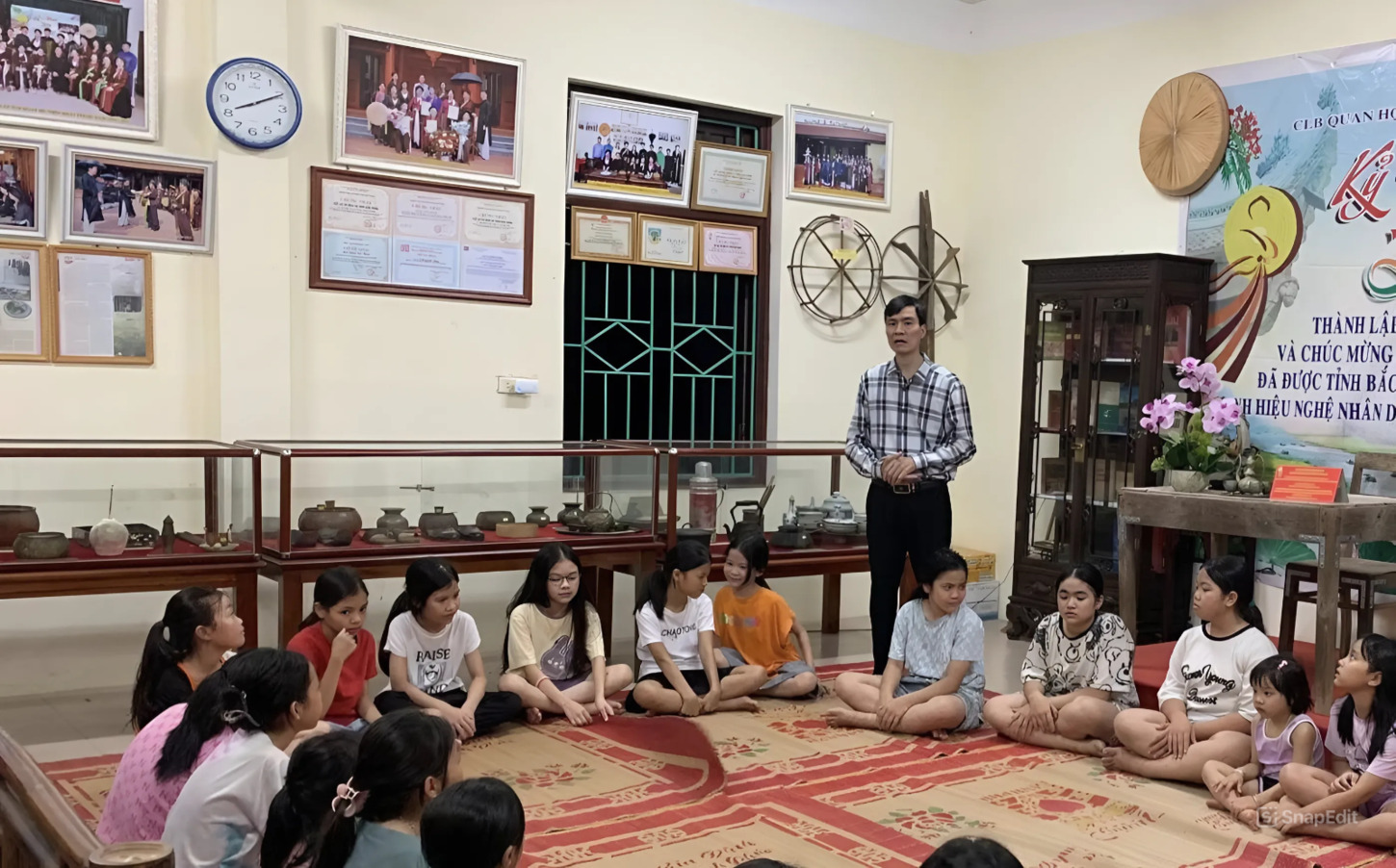 |
At the end of 2024, Bac Ninh Quan Ho folk songs will mark 15 years since being recognized as an Intangible Cultural Heritage of Humanity. That 15-year journey also recognizes the great contributions of brother Duong Duc Thang in his efforts to preserve and spread Quan Ho folk songs. For the people of Hoai Trung village, brother Thang is like a "unique" shining example.
Mr. Nguyen Kim Thanh, Deputy Director of Bac Ninh Quan Ho Folk Song Theater (formerly Deputy Director of Bac Ninh Provincial Cultural Center) shared: “Mr. Duong Duc Thang is a quiet person but possesses a wealth of valuable knowledge about Quan Ho. Through each conversation or each time we go together to introduce and promote Quan Ho, I am more and more impressed by his dedication to preserving and promoting the heritage values of his hometown Bac Ninh. Besides the souvenirs he collected, the ancient songs he performed are also things that I, and many others, have never heard before, making me admire and respect him even more."
PHAM THU
Source: https://www.qdnd.vn/phong-su-dieu-tra/cuoc-thi-nhung-tam-guong-binh-di-ma-cao-quy-lan-thu-16/lien-anh-gan-ba-thap-ky-giu-hon-quan-ho-824125






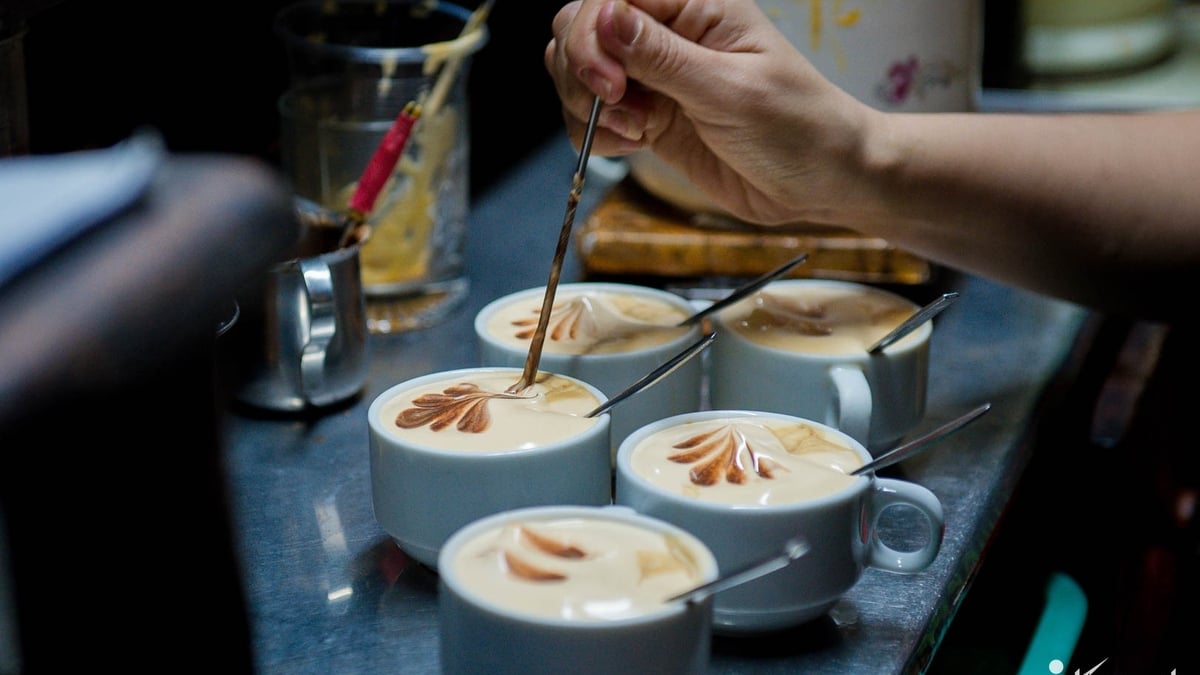

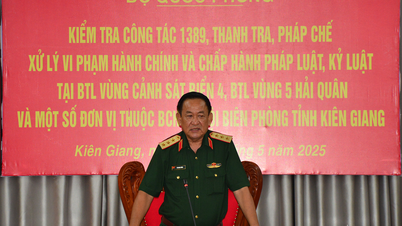
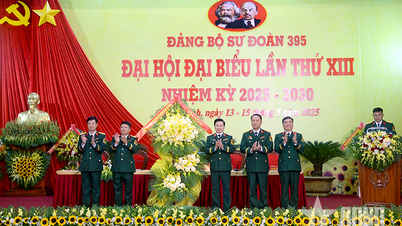
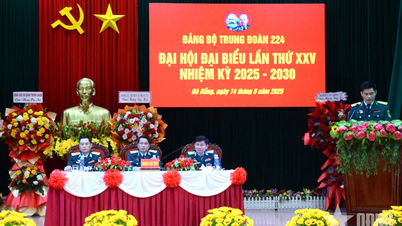
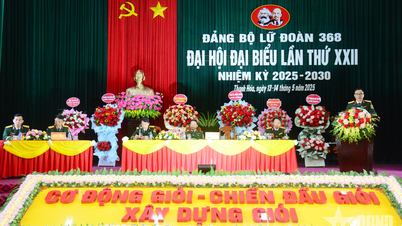
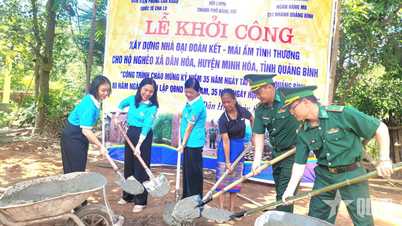





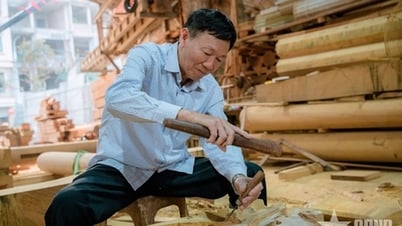

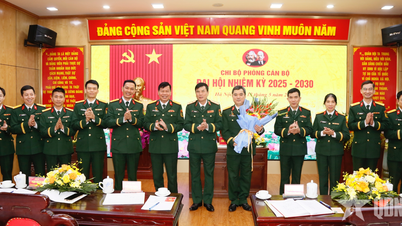
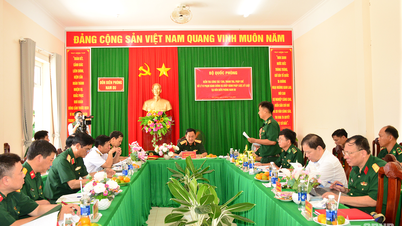
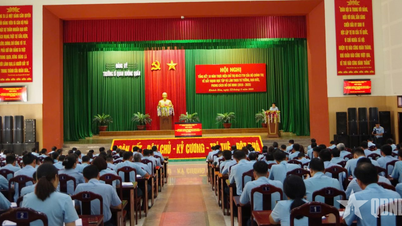
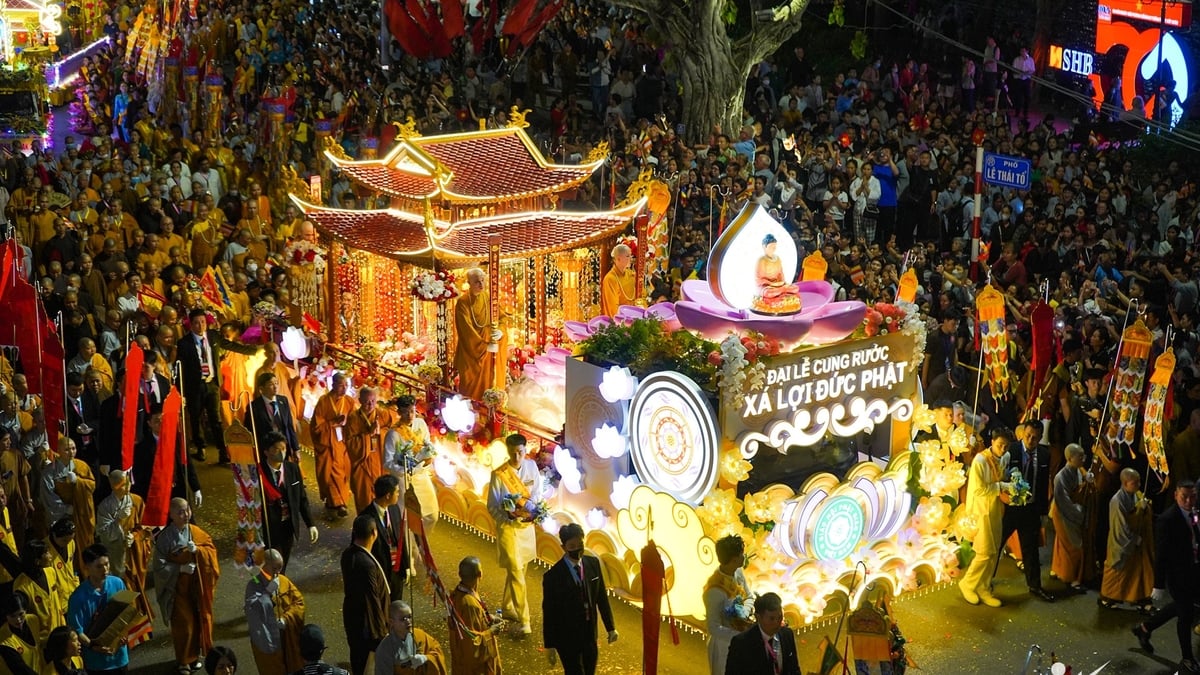


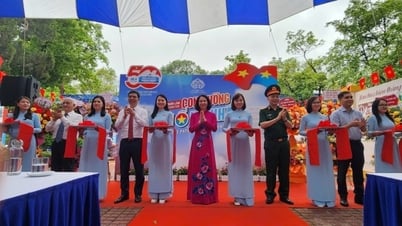









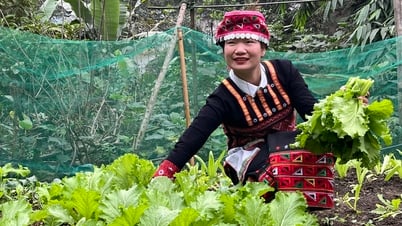



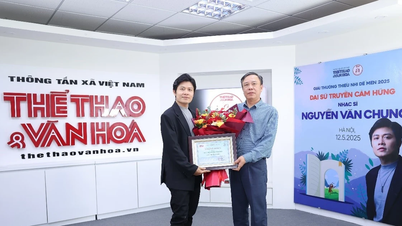

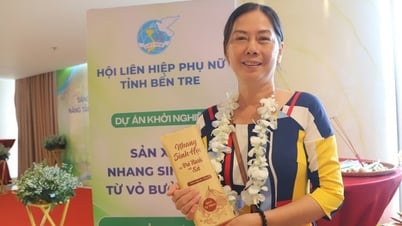















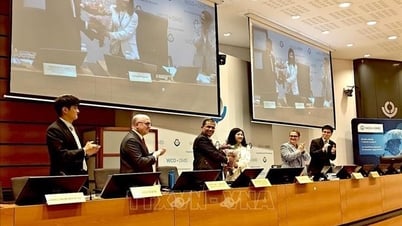





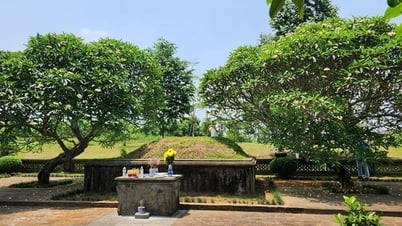

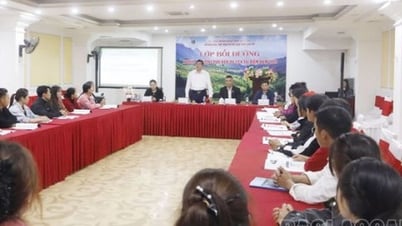
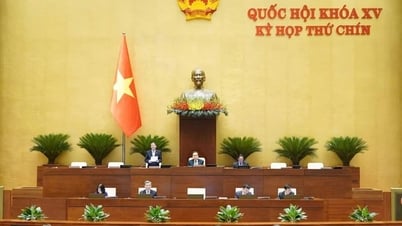

















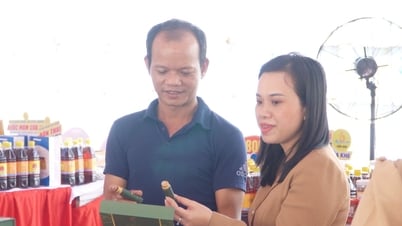
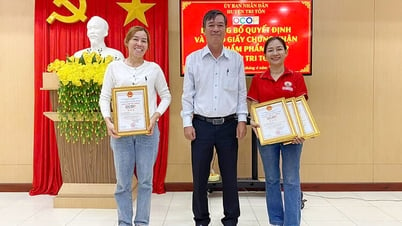



Comment (0)